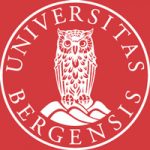项目介绍
Energy has been considered a core research area within the broadly-based disciplines of environmental science and technology. It is one of the most salient emerging disciplines amongst many in the fields of engineering, science and social science. Energy Technology research covers many areas, including sustainable technology, conventional technology, and energy efficiency and conservation. The interdisciplinary research postgraduate program in Energy Technology in the School of Engineering at the Hong Kong University of Science and Technology provides long-term support to our ongoing educational training and fast-developing research in technology in general.
Due to the multi-disciplinary nature of Energy Technology, research and training in the field is integrated with different disciplines so that students are equipped with the necessary knowledge and experience. The Energy Technology Concentration covers different disciplines including Chemical and Biomolecular Engineering, Civil and Environmental Engineering, Computer Science and Engineering, Electronic and Computer Engineering, Industrial Engineering and Decision Analytics and Mechanical Engineering. Students can enroll in a particular discipline for research with a special focus on topic(s) in Energy Technology.
The School of Engineering has introduced an Energy Technology Concentration in different disciplines with the following research foci and facilities.
Research Foci
The School of Engineering has unrivaled strength in Energy Technology with a strong team of more than 40 faculty members working in one or multiple topics related to energy. The following core research areas represent the current expertise and research activities across the six departments in the School:
Conventional Technology
Three main types of fossil fuels, namely coal, petroleum, and natural gas, liquefied petroleum gas (LPG) derived from the production of natural gas, nuclear energy, solid waste treatment and management, radioactive waste treatment, reactor materials, durability and fracture mechanics of reactor materials and structure, nuclear reprocessing, environmental effect of nuclear power, hydropower dam structures, turbine materials and design, hydrology and sediment, water quantity and quality, sources of water, environmental consideration in the design of waterway systems, advanced technologies for conventional energy production, such as gas hydrates, microwave refining, and synthetic fuel involving the conversion process from coal, natural gas and biomass into liquid fuel.
Economy and Society
Clean production process for reducing material consumption and pollution, software for waste minimization and pollution prevention, green materials for industrial application and building environment, hazards impacting environmental health, analysis of environmental risk, socio-economic and life-cycle analysis for policy-making and planning, novel compounds from marine organisms, and policy on efficient energy use.
Energy Efficiency and Conservation
In electronics: energy integration for chemical and energy industries, energy-efficient computation, high-efficiency power electronics, power management integrated circuits, low power ICs, green radio, customized building for energy-saving, LED for solid state lighting, smart grids, wireless sensor networks, battery-powered electronics, and mobile electronics. In energy-efficient building: lightweight heat-insulating building material, customized building for energy-saving, energy-saving from solid state lighting.
Production of Ethanol from Cellulosic Materials
Enhanced use of biogas produced from microbial conversion in landfills of municipal solid wastes, wastewater, industrial effluents, and manure wastes, use of planted forests for production of electricity either by direct combustion or by gasification, use of highly efficient gas turbines, energy scavenging for mobile and wireless electronics which enable systems to scavenge power from human activity or derive limited energy from ambient heat, light, radio, or vibrations.
Sustainable Technology
Sustainable energy sources including all renewable sources, such as plant matter, solar power, wind power, wave power, geothermal power and tidal power, improving energy efficiency, fuel cells for transportation and power generation, nanostructured materials for energy storage devices including fuel cells, advanced batteries and supercapacitors, nanostructured electrodes, graphene-based anode and cathode materials, battery system and package management, organic and inorganic photovoltaic materials, gasification of biomass for energy production, biorefinery and bioprocessing for energy generation, and innovative technologies for converting and recovering solid wastes into energy.
Facilities
A total of six research centers are actively involved in energy-related topics: the Center for Sustainable Energy Technology, Center for Display Research, Center for Advanced Microsystems Packaging, Finetex-HKUST R&D Center, Photonics Technology Center, and Building Energy Research Center at Nansha.
To qualify for admission, applicants must meet all of the following requirements. Admission is selective and meeting these minimum requirements does not guarantee admission.1. General Admission Requirements of the University
- Applicants seeking admission to a master’s degree program should have obtained a bachelor’s degree from a recognized institution, or an approved equivalent qualification;
- Applicants seeking admission to a doctoral degree program should have obtained a bachelor’s degree with a proven record of outstanding performance from a recognized institution; or presented evidence of satisfactory work at the postgraduate level on a full-time basis for at least one year, or on a part-time basis for at least two years.
2. English Language Admission Requirements
Applicants have to fulfill English Language requirements with one of the following proficiency attainments:
- TOEFL-iBT: 80*
- TOEFL-pBT: 550
- TOEFL-Revised paper-delivered test: 60 (total scores for Reading, Listening and Writing sections)
- IELTS (Academic Module): Overall score: 6.5 and All sub-score: 5.5
* refers to the total score in one single attempt
Applicants are not required to present TOEFL or IELTS score if
- their first language is English, or
- they obtained the bachelor’s degree (or equivalent) from an institution where the medium of instruction was English.
联系方式
电话: +852 2358 8888相关项目推荐
KD博士实时收录全球顶尖院校的博士项目,总有一个项目等着你!






